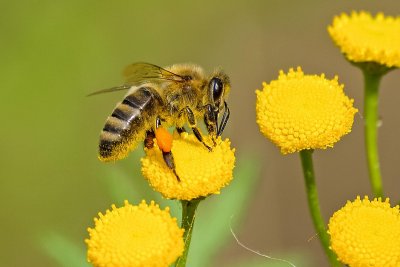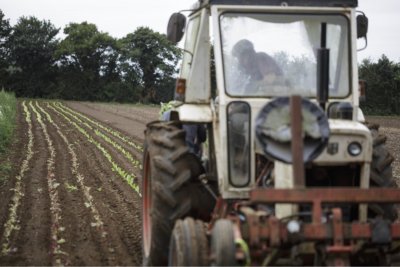In a move that has sparked condemnation from environmental groups, DEFRA has once again authorised the use of neonicotinoid pesticides for sugar beet farming—chemicals well known for their deadly impact on bee populations.

This marks the fourth successive year that DEFRA has overridden the ban on neonicotinoids, citing the risk of disease pressure on sugar beet crops as justification. The recurring emergency authorisations have led to skepticism about the ban's credibility - with Richard Benwell, CEO of Wildlife and Countryside Link, condemning the decision:
"To have four emergency authorisations in a row makes a mockery of the ban, and now the trigger has been reached, nature will once again have to endure exposure to this harmful chemical.
The risk to nature which these chemical pose was highlighted in a recent blog by Vicki Hird, Strategic Lead on Agriculture for the Wildlife Trusts, who said:
Just half a teaspoon of this chemical can kill 1.25 billion bees. A minuscule trace can disrupt a bee’s ability to navigate and reproduce, with long-lasting consequences for their survival. When neonicotinoids are washed into streams and rivers they are extremely toxic to aquatic invertebrates and further pollute our already struggling waterways.
This is why we need neonic-free sugar. British Sugar is the sole buyer and processor of UK-grown sugar, but currently the company provides no way for beet farmers who choose not to use neonics, to market their sugar as neonic-free. And as consumers, we also have no way of knowing if the sugar we buy is affected. So with the government caving in, only British Sugar can make this change happen.
Giving us a choice not to buy neonicotinoid sugar and helping farmers choosing to grow sugar without neonicotinoids (known as neonics) is a key way to a more nature friendly future. Many farmers are trying to do this, but they need more support. And there's plenty of evidence that our food can be produced in a way that helps, rather than harms, nature.
Published Tuesday 5 March 2024
Sustain: Sustain The alliance for better food and farming advocates food and agriculture policies and practices that enhance the health and welfare of people and animals, improve the working and living environment, enrich society and culture and promote equity.





